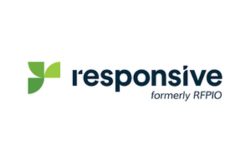North west businesses are still playing a broadband lottery with ‘patchy access’ to superfast speeds across the region, according to research from Deloitte.
A year on from its last broadband study – which found massive variations in speeds across the region – the business advisory firm has examined the types of broadband available in key business locations across Manchester and Liverpool. The results show limited access to superfast speeds with no locations able to enjoy the fastest fibre connections.
Jodi Birkett, TMT partner at Deloitte in the north west, said: “Broadband speed is a big issue for businesses. With the rise of cloud computing the need for high internet speeds has become more acute and a slow connection can have a serious impact on business productivity.
“The state of play in Manchester and Liverpool doesn’t make for good reading and it needs improving if we want to create a true ‘northern powerhouse’.”
The research looked at whether key business areas – including Spinningfields, Old Hall Street and Manchester Science Parks – had access to superfast fibre optic broadband, specifically fibre-to-the-premises (FTTP) or fibre-to-the-cabinet (FTTC).
Traditional copper-based broadband depends on distance from the exchange to the building, leading to much slower speeds. FTTP is the fastest option, with end-to-end fibre optic connection the full distance from the exchange to the building. On the other hand, FTTC sees fibre optic cables run from a distribution point to street cabinets, and finally to a standard phone line to provide broadband.
Of the 12 locations analysed, only four could benefit from FTTC (Sharp Project, Little Peter Street, Cheadle Royal, Birchwood Park) while none had access to FTTP.
Simon Hearne, senior manager in Deloitte’s North West TMT team, said: “Some larger businesses have the cash reserves to put fibre down themselves, while others can share faster connections they have in different parts of the country through Ethernet services.
“However for smaller companies, slower connections can be a real issue. For instance, businesses in the creative industries typically deal with lots of images and video – large data that needs fast connection speeds.
“Fibre coverage is a priority for the government and there has been plenty of investment in recent years, but it’s not yet benefited all businesses on the ground.”
SOURCE: M.E.N.









